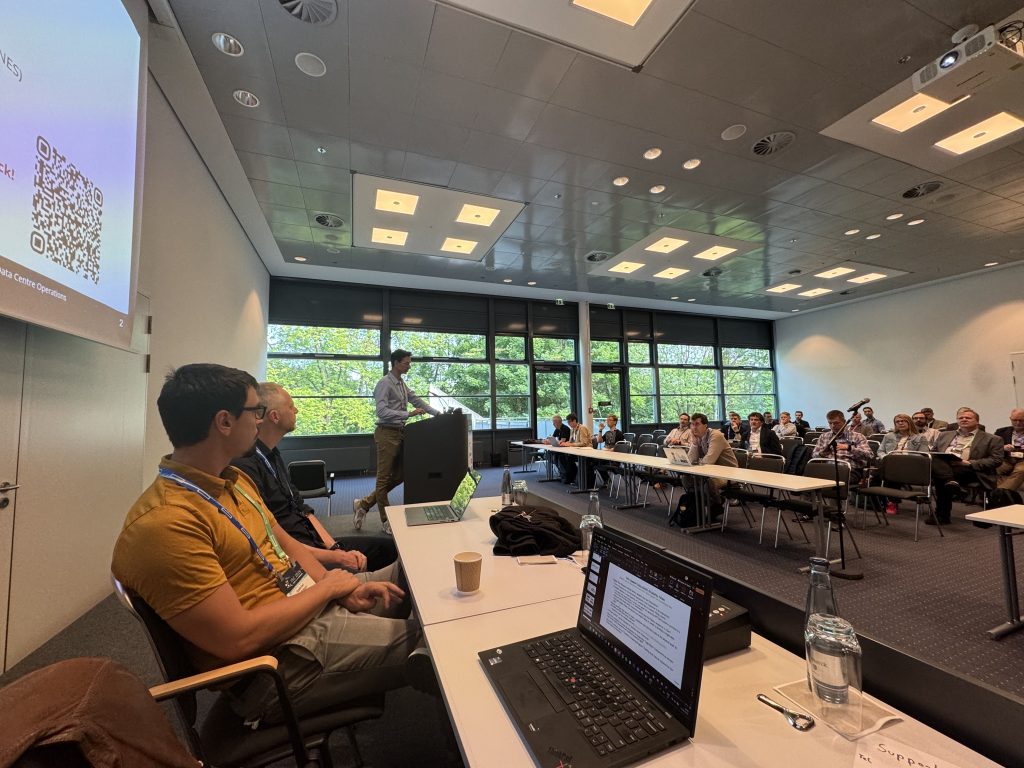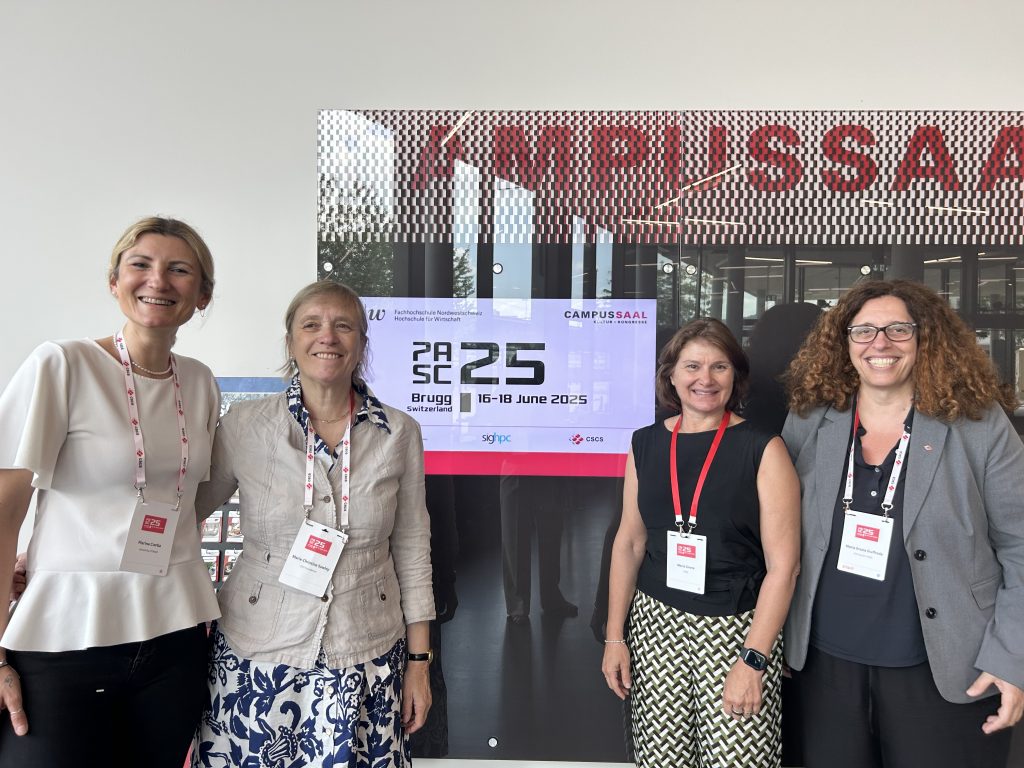CERN openlab at PASC25: Advancing Scientific Computing Through Collaboration
CERN openlab at PASC25: Advancing Scientific Computing Through Collaboration
CERN openlab was present at this year’s Platform for Advanced Scientific Computing Conference (PASC25), held in Brugg, Switzerland, from June 16–18. The event brought together researchers and industry experts from around the world to explore advances in scientific computing, high-performance systems, and emerging technologies.
Matteo Bunino, Computing Engineer at CERN openlab, co-authored and co-presented three research posters across two days of the conference. These contributions showcased CERN’s collaborative efforts in applying advanced computing to real-world scientific challenges:
- ‘itwinai: Enabling Scalable AI Workflows on HPC for Digital Twins in Science’: https://pasc25.pasc-conference.org/presentation/?id=pos113&sess=sess150
- ‘Enabling Lattice QCD Normalizing Flows in HPC Infrastructures’: https://pasc25.pasc-conference.org/presentation/?id=pos110&sess=sess149
- ‘Interactive Visualization of High-Energy Physics Events via Nvidia Omniverse’: https://pasc25.pasc-conference.org/presentation/?id=pos120&sess=sess150

These works reflect ongoing R&D efforts within the interTwin project and CERN openlab, especially in developing AI-driven workflows, and digital twin technologies that can operate efficiently on HPC infrastructure.
Maria Girone, Head of CERN openlab, also played an active role at PASC25. She co-authored and co-presented a poster session (‘itwinai: Enabling Scalable AI Workflows on HPC for Digital Twins in Science’) and co-chaired a minisymposium focused on emerging trends in high-performance computing and scientific workflows.
The symposium fostered discussions around AI integration, scalable computing architectures, and the future of scientific software development – key areas of strategic importance for CERN openlab.
Maria also played a role in a minisymposium, titled ‘Breaking the HPC Silos for Sustainable Development’ which was co-organised by Marie-Christine Sawley, Maria Girone, Maria-Grazia Giuffreda, and Florina M. Ciorba, all co-founders of the IDEAS4HPC Swiss chapter of the Women in High-Performance Computing (WHPC).

Marie-Christine Sawley, Maria Girone, and Maria-Grazia Giuffreda.
IDEAS4HPC aims to promote diversity and inclusion of women and other under-represented groups in High-Performance Computing (HPC) and large-scale computing. In this minisymposium, there was also a presentation by Asal Mehrabi, a 2024 CERN openlab summer student funded by IDEAS4HPC.
CERN openlab’s involvement at PASC25 underscores its continued leadership in developing and testing advanced computing solutions for science. Through active participation in conferences like PASC, CERN openlab strengthens its collaboration with academic and industrial partners and helps shape the future of computing in research.
